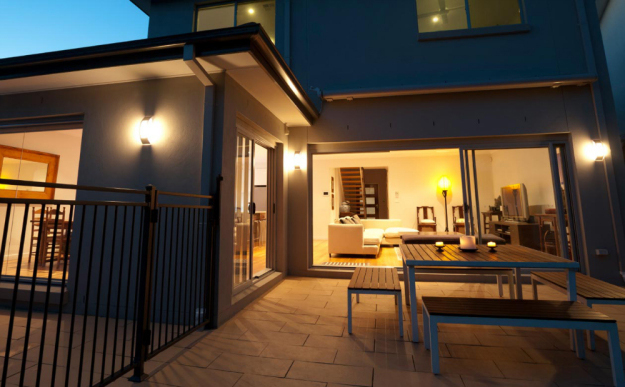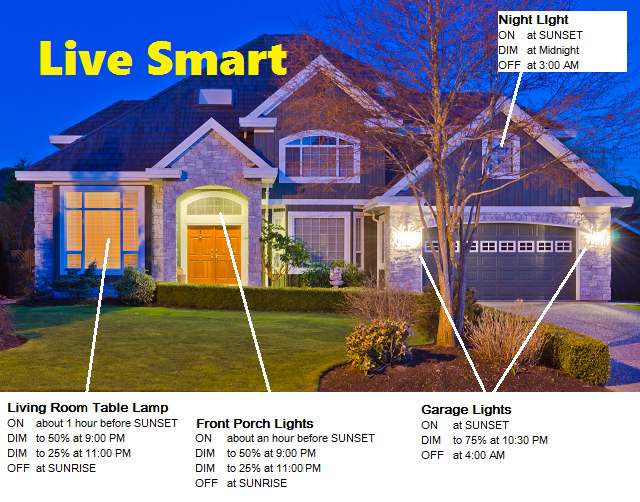Smart home startup Light Sentry uses sensors to automate lighting year-round
A new startup aims to wean automated home lighting users off manual scheduling by deploying light sensors and switch devices in and around a user's home for dynamic control based on localized, accurate measurements.
Light Sentry hit Kickstarter in May as a holistic automated lighting solution. Unlike other systems on the market, Light Sentry touts sensor-based controls along with the usual time/date configuration options and specialized hardware to create an ecosystem of connected devices.
Bill Dorn, Light Sentry's creator, says home lighting should be controlled by actual sunlight at the home, not timers, schedules or Internet-based weather reports.
Currently, many mid-tier home automation solutions rely on triggers from centralized data feeds. For example, the popular Web-based automation tool If This, Then That can pull sunset and sunrise information from a local weather feed to control devices like Philips' Hue wireless lightbulbs.
What Dorn proposes is a solution more in line with automatic car lights. By taking local measurements via Light Sentry's Natural Light Sensor, the system can provide accurate and current analysis of ambient lighting to provide accurate control even during unexpected situations like fast-moving storms.
In addition to immediate feedback, the system can also be programmed from Macs and PCs to account for time, customized light conditions and time conditional scenarios.
For example, a time conditional setting could prompt a user's foyer lights to turn on at 6 a.m. but only if it's dark, say in winter. This set-and-forget feature allows Light Sentry to basically take care of itself throughout the year and is something only a sensor-based system can provide.
Like other connected home systems, Light Sentry relies on a specialized hub that communicates with an ecosystem of switches, dimmers and "Power Gates" (outlets) via Bluetooth 4.0. The hot-pluggable Portable Power Gates are especially interesting given they can convert standard lamps and appliances into controllable hardware.
With only three days left in its Kickstarter campaign, Light Sentry is far shy of reaching its $200,000 goal, but Dorn says he plans to keep the project on track and expects the first products to ship in November.
 AppleInsider Staff
AppleInsider Staff













 Malcolm Owen
Malcolm Owen
 William Gallagher and Mike Wuerthele
William Gallagher and Mike Wuerthele
 Christine McKee
Christine McKee
 William Gallagher
William Gallagher

 Marko Zivkovic
Marko Zivkovic









